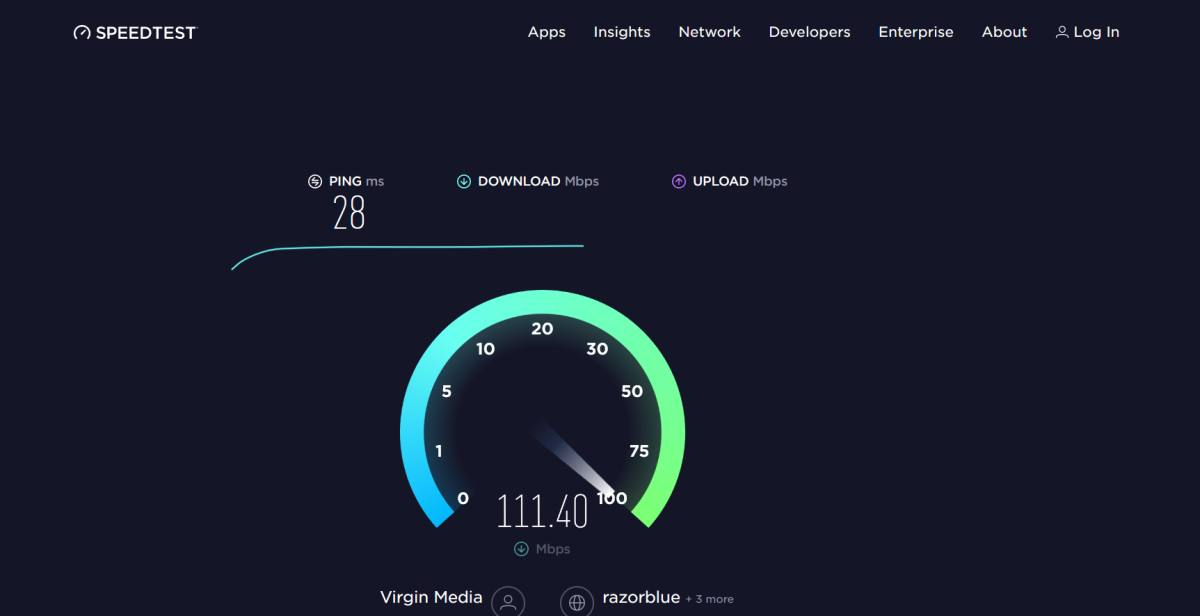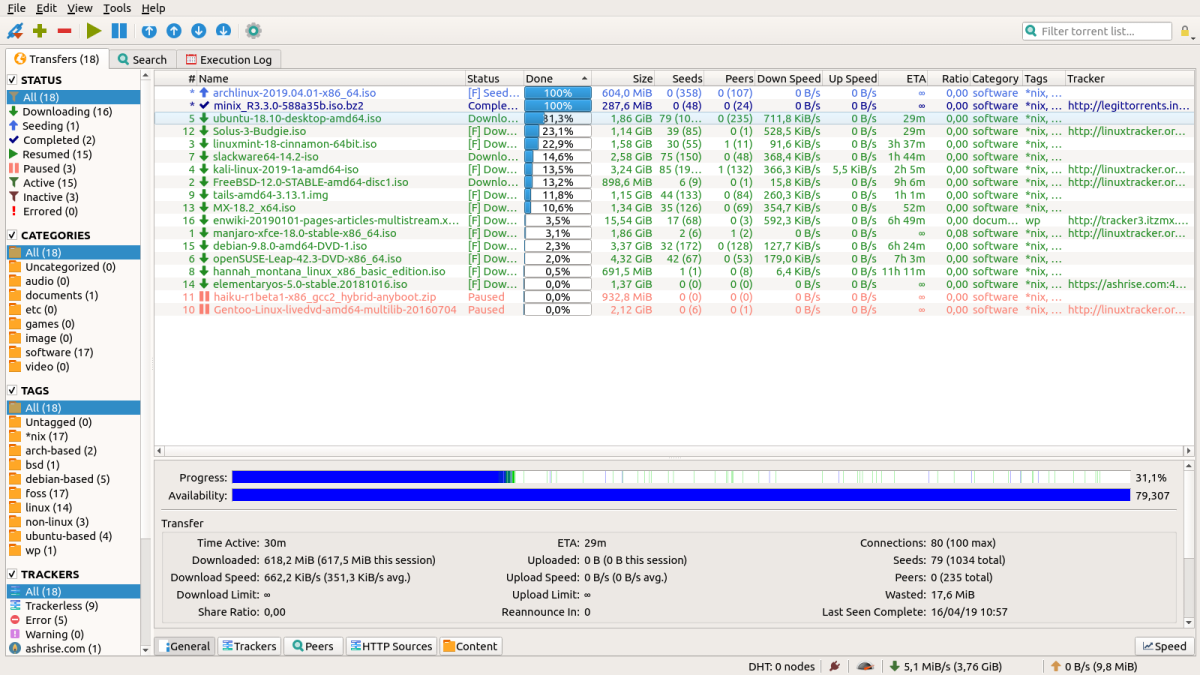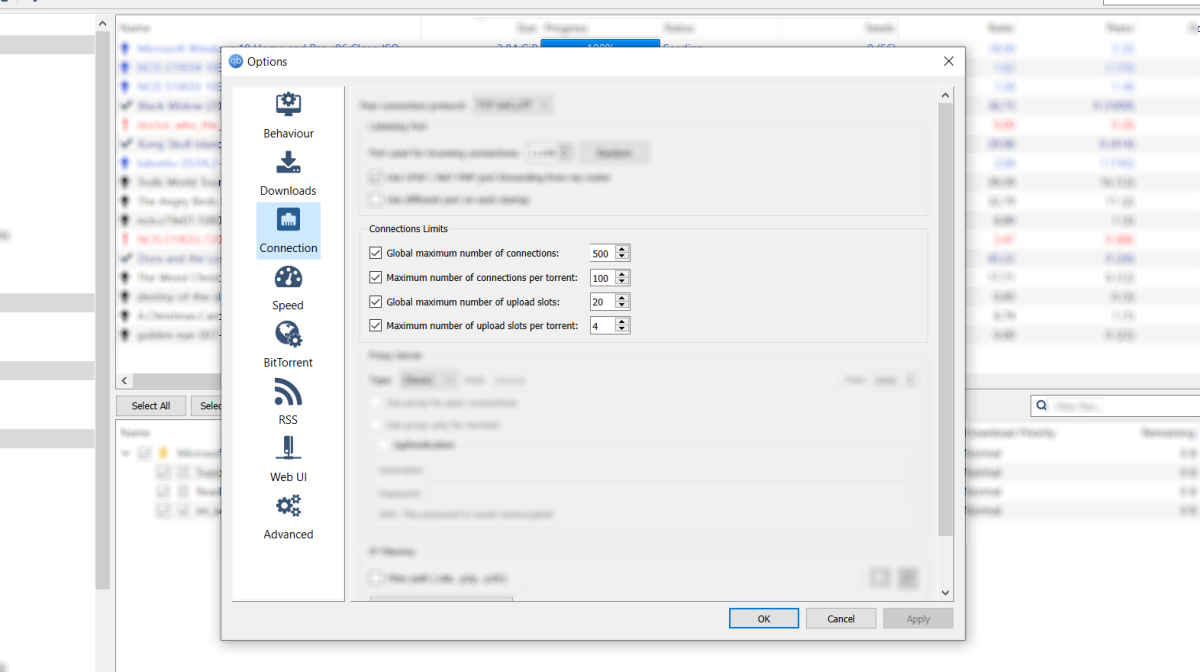BitTorrent downloads not as fast as you would like? Whether you're downloading public domain movies, Linux operating systems, or anything else legally distributed on the torrent network, the implication of using peer-to-peer software is that it should be fast.
Often, this isn't the case. So, how can you increase your torrent speed? Below are 10 tips and tricks that will show you how to increase torrent download speeds.
Note: MakeUseOf doesn’t condone the illegal use of torrents. Using torrents for illegal purposes is done entirely at your own risk. We assume no responsibility for any legal issues you may encounter.
1. Speed up Your Torrent – Get a New ISP

Your Internet Service Provider (ISP) determines the speed of your internet connection.
Most ISP's have specific bandwidths for uploads and downloads, with maximum caps in place to enable a robust network. As such, your torrent download speed won't exceed the cap.
To find out what cap is, use a broadband speed testing service (such as www.speedtest.net) to measure upload and download speeds. If you feel these aren't fast enough for your purposes, it could be time to switch to an ISP with faster speeds on offer.
2. How to Get Faster Torrent Speeds With a VPN
ISPs use a technique called "traffic shaping" to prioritize traffic on their network. This means the ISP can detect what data is being sent, routing it to its destination based on how important it considers the data to be.
Typically, torrent file data has a very low priority.
Usually, BitTorrent clients have tools for managing whether data is encrypted or not. However, this is inadequate in the face of ISP packet detection. In this case, VPN software is advised. With a BitTorrent-friendly VPN, you can ensure that traffic shaping isn't limiting speed.
You might even see an overall torrent speed increase. Be aware that not all VPNs support torrenting, however.
3. Choosing the Right BitTorrent Client
Various BitTorrent clients are available, for Windows, macOS, Linux, Android, and even iOS.
Using one of the better clients is advisable, such as qBittorrent or Transmission. Wikipedia lists about 25 BitTorrent clients. Whichever one you choose, it should feature configurable settings to help you get the most out of your torrent downloads and shares.
4. Keep Your BitTorrent Client Updated
With your BitTorrent client installed, it's wise to ensure it stays updated. Performance issues in the software can lead to slower downloads. Keeping the software up-to-date can increase torrenting speed as well as overcome security issues in the torrent client.
So, whenever your BitTorrent client tells you that an update is ready, be sure to download and install it straightaway.
5. How Healthy Seeds and Peers Can Speed up Torrents

A peer is any computer participating in the download and upload of a torrent file. A seed (or seeder) is anyone who has one complete copy of the file being shared across the torrent network.
Meanwhile, a leech (or a leecher) is the downloader It's a person who does not have the complete file yet but has joined the network to download it. A leecher becomes a seeder once download is complete and the entire file can be shared across the network.
For high torrent speeds, popular torrents are the best choice. The greater the number of seeders, the healthier the torrent and the better the chance of higher speeds. A ration of high seeders to low leechers will result in faster file sharing and downloading.
6. Configure Your Firewall Correctly
Modern firewall software should enable BitTorrent connections. This either happens silently, or by alerting you with a pop-up that you need to react to.
If this doesn't work, you can set the BitTorrent client as an exception in your firewall software. Check the firewall's documentation on how to do this.
You may also need to configure your internet router to allow BitTorrent access. This is usually configured through a feature called Port Forwarding. The router documentation should have specific information on this.
7. Upgrade to a Faster Computer
While internet speed is important for downloading BitTorrent files, the speed and performance of your PC is key to success. A slower, older computer with less RAM and storage, and inefficient processor, isn't going to download as quickly as a newer model.
More RAM and a faster CPU is particularly important. Faster SSD storage can also help you to gain a torrent speed increase.
8. How to Speed up Torrents By Limiting the Upload Rate
A peer-to-peer network is all about sharing.
But an unlimited upload rate impacts on the download speed. However, you can tweak the download rate to get a faster upload.
- Use a speed test tool to find the maximum upload speed
- In your torrent client, set the upload rate to 80% of this speed
Varying upload speeds is also smart, starting high and then gradually reducing around halfway through the download.
Be aware that speed units may be given in kilobits per second (kb/sec) or kilobytes per second (kB/sec) - 1 kilobyte = 8 kilobit.
If you're downloading multiple files, meanwhile, stopping or pausing those that have completed in favor of anything still downloading is a good idea.
9. How to Adjust Torrent Bandwidth and Connections

Your BitTorrent client's settings options will let you specify figures for maximum connections and slots. Various configurations can be set here to speed up torrent downloads. These are labelled slightly differently depending on the client. For example, in qBittorrent:
- Global maximum number of connections: gives the maximum number of connections that a BitTorrent client can make for any P2P exchange. Setting this too high does NOT mean higher speeds. Setting it too high would take up useless bandwidth and too low a figure would miss out on peers.
- Maximum number of connections per torrent: gives the maximum number of peers that a BitTorrent client can connect to for any P2P exchange. Experiment by setting this number close to the available peers for a particular torrent.
- Global maximum number of upload slots: controls the maximum number of peers to upload to for any single torrent. Clients typically prioritize peers who are sharing with you.
- Number of upload slots per torrent: this sets the maximum number of peers that a BitTorrent client will upload to for any P2P exchange. A low setting may affect download speeds.
These are probably the four most powerful settings in any BitTorrent client, so make sure you know where to find them.
10. Forget Wi-Fi, Use Ethernet to Speed up Torrents
If you’re using a wireless network for peer-to-peer file sharing, you can enjoy considerable speed increases by switching to a hardwired network.
All routers feature an Ethernet port, which will guarantee a faster connection than wireless can achieve.
To compare:
- Wireless: up to 6933Mb/s for 802.11ac (Wi-Fi 5), 9608Mb/s for 802.11ax (Wi-Fi 6)
- Ethernet: up to 100Gb/s, 10Gb/s more likely
Ethernet also has far less latency than wireless. In addition, an Ethernet cable is less susceptible to interference, offering a a more reliable, stable, “always-on” connection. Most PCs have an Ethernet port. Some laptops don't, but for reliability a USB to Ethernet adapter is worth using.
Speed up Torrent Download Speed With These Tips
By now, you should have managed to find a way to enjoy faster torrent downloads. The best methods are:
- Change to a faster ISP
- Use a VPN with support for torrents
- Choose the best BitTorrent client
- Keep the client updated
- Stick to healthy seeds and peers
- Configure your firewall correctly
- Upgrade your PC
- Limit download speeds to help upload speeds
- Adjust torrent bandwidth
- Rely on Ethernet rather than Wi-Fi
One, more, or even all of these tips can be used to deliver noticeable increases in speed from your torrent downloads.